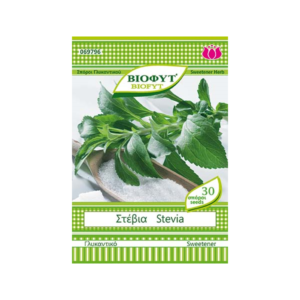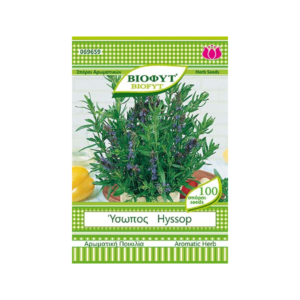Eggplant Flask
Eggplant Flask
Eggplant, the summer’s favorite vegetable! Eggplant is one of the main ingredients of the Mediterranean cuisine that we enjoy in unique summer recipes, from the world-famous moussaka, to the wonderful shoes and the Asia Minor imam baildi. Eggplant is a vegetable with high nutritional value that contains many antioxidants and vitamins. It is eaten mainly grilled, fried but also stewed. We avoid eating eggplant raw, because of its bitter taste, as well as the solanine, a toxic substance it contains when harvested prematurely.
The eggplant crop grows to a height of about 80-90 centimeters and usually does not need subtiling. Eggplant leaves have a smooth upper surface and are smooth while the underside is relatively fluffy. It is planted in the spring and forms characteristic purple flowers that give us the fruits in the summer.
There are many known varieties and hybrids of eggplant to grow. It is important to choose eggplant varieties from our own seed that we keep, so that we know the special characteristics of each variety and how it adapts to the conditions of our region. Among the traditional and local eggplant varieties, we distinguish the Lagada eggplant variety with its long, narrow purple fruits, the purple flask eggplant used in stuffed foods, as well as the teardrop eggplant with its characteristic shape. The two-colored Tsakonian eggplant with its white and purple stripes is also unique and particularly popular and does not taste bitter. Also, the Santorini eggplant is a very distinctive variety with impressive white round fruits and a delicious sweet taste that is not bitter.
Eggplant cultivation grows best in areas with a warm climate. It is worth mentioning that the eggplant needs more heat than the tomato crop and the pepper crop, as well as being much more sensitive to low temperatures and frost. Eggplant planting takes place from April onwards, when the temperature has risen noticeably. Eggplant grows in loose, fertile soils that have good drainage to remove excess water. When preparing the soil for cultivation and before planting the eggplant, we plow the garden and incorporate enough organic matter into the planting pits in the form of compost and digested manure, as well as complete organic fertilizer.
Eggplant cultivation has significant water needs and requires regular watering in order to be efficient and to give us quality fruits in large quantities. We water the eggplants twice a week in the spring season and every 2 days in the hot summer season. As is generally true for watering vegetables, a suitable watering system for our eggplants is the system of drip pipes. It offers more efficient and economical watering while limiting the growth of unwanted weeds during cultivation. We must be aware that during the flowering period of eggplant, lack of water can cause the flowers to drop and production to decrease. At the fruiting stage, eggplant cultivation needs constant watering, especially in the hot summer months, to avoid the formation of bitter-tasting fruits.









